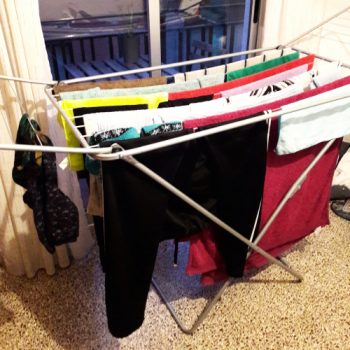
Why do I Naturally Bond with Other Foreigners?
Dear Mila,
Although most of us who move abroad strive to immerse ourselves in the language and culture we have chosen, I find that it is nearly unavoidable that you will naturally bond with other foreigners. Try as you may, it’s simply easier to open up to someone else who comes from your country, who speaks your native language, and/or who is living a similar experience as an ‘outsider’ in your host country. This phenomenon can be very frustrating and might even make you feel like a bit of a hypocrite but, trust me, it makes sense when we break it down into these three reasons, so let’s talk a little more.
 1.) You can express yourself better in your native language
1.) You can express yourself better in your native language
I have been studying and practicing Spanish for the past fifteen years of my life but there is still no doubt that I can express myself better in English. Even as you become fluent in a second (or third or fourth) language you’re likely to feel limited in that language when it comes to the nuances (think connotation, sarcasm, play-on-words, even pop culture references that are more popular in one language than another). Despite being able to express yourself, you’ll probably feel like you can’t say EXACTLY what you want to say in this newer language.
Case-in-point: My Spanish friends find it funny that I constantly say “me siento mal” or “I feel bad” which makes complete sense in English for a situation that makes you feel guilty, uncomfortable, or shameful. At the same time, it doesn’t quite get at those feelings in Spanish. However, in the moment when I am already feeling uneasy about how someone will take what I have said or whatever it is that is “making me feel bad” I find it even harder to grasp those more precise words I am looking for. I just wish I could talk about feeling embarrassed, awkward, or uneasy but those words (in a colloquial, non-formal form) never feel available to me.
Thus, when you find that person who seems to ‘get you’ so easily and with whom you can bond quickly without putting forth much effort to express yourself it comes as no surprise that you’ll want to hold on to them. Unless you genuinely avoid other foreigners like the plague, this person who ‘gets you’—who laughs at your jokes and who even picks up on the sarcasm you’re trying to use (but not really finessing) in Spanish—is likely to be someone who speaks your own language. Even if you make the effort to practice Spanish with this person, the common mistakes, direct translations, and imperfect interpretations you have of Spanish are likely to be similar and bring you to feel even MORE understood and closer.
2.) It takes less effort to relate to someone who comes from your country
No, I’m not calling you lazy! I fully admit that this is how I started out most friendships with other Americans I’ve met abroad. While it can be very rewarding to have to spend more time and effort to get to know some who is different from you and come to find out you actually do have a lot or (or at least some important) things in common, it can feel much more natural and effortless when you meet someone who comes from your home country.
 While you may eventually find that you don’t actually have that much in common, you’ll instantly be struck by the things you do share, simple as they may be. It can be nothing more than the fact that they wear/use the same brands as you (that you can’t find here in Spain), that they also had an American university experience, that they’re in a sorority, played for a collegiate sports team, miss the same holidays and snacks as you—you get the idea! It’s not that these are the things that you necessarily want to build a lasting relationship over, but they are quick and obvious points of commonality that may make you more likely to engage in further conversation with this person.
While you may eventually find that you don’t actually have that much in common, you’ll instantly be struck by the things you do share, simple as they may be. It can be nothing more than the fact that they wear/use the same brands as you (that you can’t find here in Spain), that they also had an American university experience, that they’re in a sorority, played for a collegiate sports team, miss the same holidays and snacks as you—you get the idea! It’s not that these are the things that you necessarily want to build a lasting relationship over, but they are quick and obvious points of commonality that may make you more likely to engage in further conversation with this person.
3.) Another foreigner will understand the ways in which you feel like an ‘outsider’
In the same way, this person is likely experiencing some of the same culture shock, frustrations, and difficulties adapting to the culture where you have chosen to live. For this reason, you’ll have even more to bond over as you realize you get annoyed with the same little quirks, have had some of the same awkward conversations with your Spanish roommates or colleagues, made some of the same hilarious mistakes when using Spanish, and/or had the same want-to-pull-your-hair-out moment at the foreigner’s office.
 This does not mean that you are both ‘right’ to feel this way (read up on cultural competences here to understand why) but if you have been feeling alone in any of these difficulties it can be so overwhelmingly comforting to realize that it is, in fact, a common struggle that all foreigners face. Although you may strive to be treated like a Spaniard and want to feel like ‘one of their own’ 90% of the time, there will still be that 10% in which you just can’t take it anymore and need to vent to someone else who gets it. No one is going to know exactly how you feel and yet still let you make a huge deal out of it more than another guiri who has been in your shoes.
This does not mean that you are both ‘right’ to feel this way (read up on cultural competences here to understand why) but if you have been feeling alone in any of these difficulties it can be so overwhelmingly comforting to realize that it is, in fact, a common struggle that all foreigners face. Although you may strive to be treated like a Spaniard and want to feel like ‘one of their own’ 90% of the time, there will still be that 10% in which you just can’t take it anymore and need to vent to someone else who gets it. No one is going to know exactly how you feel and yet still let you make a huge deal out of it more than another guiri who has been in your shoes.
In the same sense, I find that another foreigner who is at a similar point in their journey is a rare gem and so we’re even more like to bond naturally. Claudia and I have often laughed that we’re only friends because all of our mutual friends have left (that’s not true, but it’s definitely a factor as Claudia ‘gets’ how I feel as someone who lives here long-term). Likewise, if you’ve just come abroad for the first time, you’re likely to bond with another foreigner who is feeling all of the same excitement (and/or confusion, homesickness, third-month feelings, etc) and so on and so forth.
More than anything, I want to tell you that it’s completely okay if your closest friends are ending up to be other foreigners. As human beings, we tend to grasp for that which is familiar—especially if we’re already pushing the bounds of our comfort zones by moving abroad. While you should absolutely make the effort to immerse in the Spanish culture and bond with Spaniards while you’re here (because they’re pretty awesome too), there’s no shame in spending time with whoever you feel most comfortable with which, naturally, just may be the other guiris.
Sincerely,
Spain




